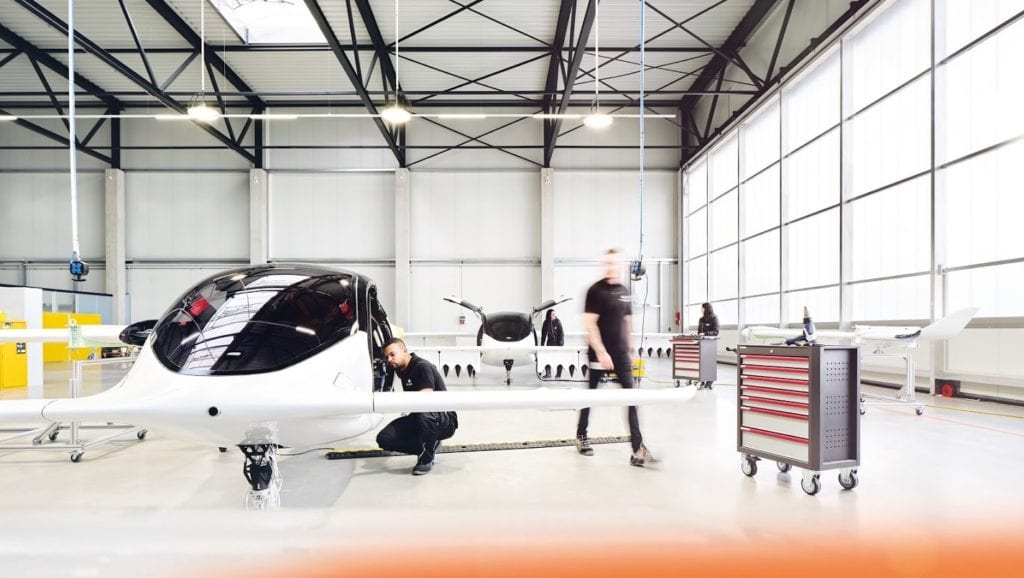
Lilium raised $240 million in additional funding from existing investors, enough for “at least 12 months of runway,” according to the company. (Lilium)
German electric air taxi developer Lilium completed an internal funding round worth over $240 million, raising its total investment to date to more than $340 million, the company announced.
A representative for Lilium told Avionics International this round, led by Chinese conglomerate Tencent with participation from other existing investors, will give the company “conservatively, at least 12 months of runway.”
“We will require further fundraising to get to market entry,” added Oliver Walker-Jones, Lilium’s director of communications.
Lilium is targeting 2025 for entry of its jet into service, offering four passengers (plus a pilot, initially) a green way to travel up to 186 miles in one hour, according to the company. Lilium also plans to launch its own app and operate its service internally — a full-stack offering that could eventually be lucrative business, but also requires greater up-front investment. Kirsten Bartok, managing partner at AirFinance, estimated eVTOL companies with these aspirations will require an additional $100-300 million in venture capital.
“This raise is an impressive feat considering the currently challenged funding environment for mobility startups,” said Asad Hussain, mobility analyst at Pitchbook. “Successful deployments [of air taxi networks] will require major advances in battery and autonomous technology and significant investment in infrastructure and transportation networks. Getting regulators and consumers on board will also be a significant hurdle. That said, these deals show that credible strategic investors are willing to bet on electric air taxis playing an important role in the future of transportation.”
The United Kingdom recently announced its intent to leave the European Union Aviation Safety Agency (EASA) and certify new aircraft types separately through its Civil Aviation Authority (CAA), which may create another expensive regulatory obstacle to Lilium’s planned entry to service.
Rumors circulated in fall of 2019 that Lilium was seeking to raise $400-500 million — about double the amount the company announced. In late February, one of Lilium’s two prototype jets was damaged in an electrical fire that broke out during ground maintenance, the exact cause of which has not yet been established.
Lilium is now the second best-funded startup in the urban air mobility sector, after Joby Aviation, which in January announced a $590 million round to bring its total war chest over $720 million.
“Nexa Capital anticipates that over $2 billion will go to other eVTOL start-ups in 2020 alone,” Michael Dyment, managing partner of Nexa Capital Partners, told Avionics after Joby announced its record-breaking fundraise.
Industry analysts have speculated for some time that the eVTOL industry will soon enter a period of bankruptcy and consolidation, with many of the 200+ aircraft projects failing to raise the necessary funding to continue. The recent coronavirus outbreak, which has ravaged the aviation sector around the globe, may accelerate that process, according to Michael Blades, vice president for aerospace, defense and security at Frost & Sullivan.
“In aviation, only the strong will survive this pandemic,” Blades told Avionics. “We will see several airline failures and we will see a lack of companies willing to invest further into eVTOL companies, especially when the strong already have funds in place and have tested prototypes. I think the whole pandemic may even change the potential market size.”
“A huge amount of the need for eVTOLs, in my opinion, would be to travel back and forth to work,” Blades added on the potential long-term implications of the outbreak. “With this massive shift to telework, I think there will be a lower need in the future for all transportation to/from workplaces.”